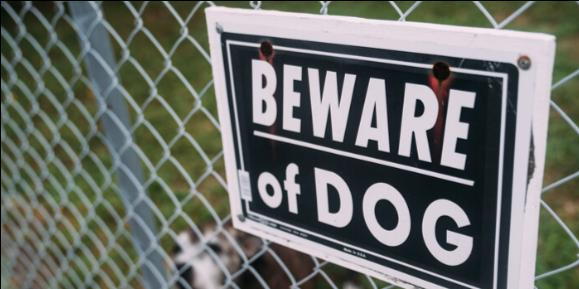
- posted: Jul. 15, 2024
- Personal Injury
In Tennessee, dog owners are shielded from liability for a bite that occurs on their property unless the victim can demonstrate that the owner knew or should have known about the dog’s dangerous tendencies. This is known as the residential exclusion. To surmount this legal hurdle, a bite victim must gather and present compelling evidence that highlights the owner’s knowledge of the dog’s aggressive behavior.
The victim of a dog bite on residential property should collect any prior incidents of aggression involving the dog. This can include previous bites, attacks or aggressive displays such as growling, lunging or snapping. Witness testimony from neighbors, visitors, delivery personnel, or anyone who has encountered the dog’s aggressive behavior can be invaluable.
Veterinary and grooming records are another critical piece of evidence. A dog’s history with a veterinarian can reveal past treatments for injuries related to fights or incidents that indicate aggression. Additionally, veterinarians might have noted behavioral issues during examinations, which can be used to argue that the owner was aware of the dog’s potential for harm.
Public records, such as animal control reports, can also support the case. These documents might include complaints or reports of aggressive behavior, citations issued to the owner for failing to control the dog or even records of the dog being declared dangerous by local authorities. These records can directly link the owner to knowledge of the dog’s dangerous propensities.
Photographs and videos can provide compelling visual evidence. Images of warning signs posted on the owner’s property, such as “Beware of Dog” signs, can suggest the owner’s acknowledgment of the dog’s aggressive nature. Any footage capturing the dog’s aggressive behavior can be powerful in court.
Social media posts by the dog owner can inadvertently provide evidence of knowledge. Posts or comments about the dog’s behavior, jokes about its aggression, or even photos depicting the dog in a menacing manner can all be used to argue that the owner was aware of the risk the dog posed.
Gathering this evidence requires meticulous investigation and a strategic approach. The dog bite victim’s attorney should diligently compile and analyze all available information to build a strong case. Proving that the dog owner knew or should have known about the dog’s dangerous tendencies can effectively overcome the residential exclusion and hold the owner accountable for the injuries caused.
The attorneys at Massengill, Caldwell & Coughlin, P.C. in Bristol, Tennessee have more than 70 years of combined legal experience representing dog bite injury victims in the Tri-Cities Tennessee/Virginia area. We are ready to put our skills and knowledge to work for you. Call us at 423-797-6022 or contact us online to schedule your free introductory consultation.


